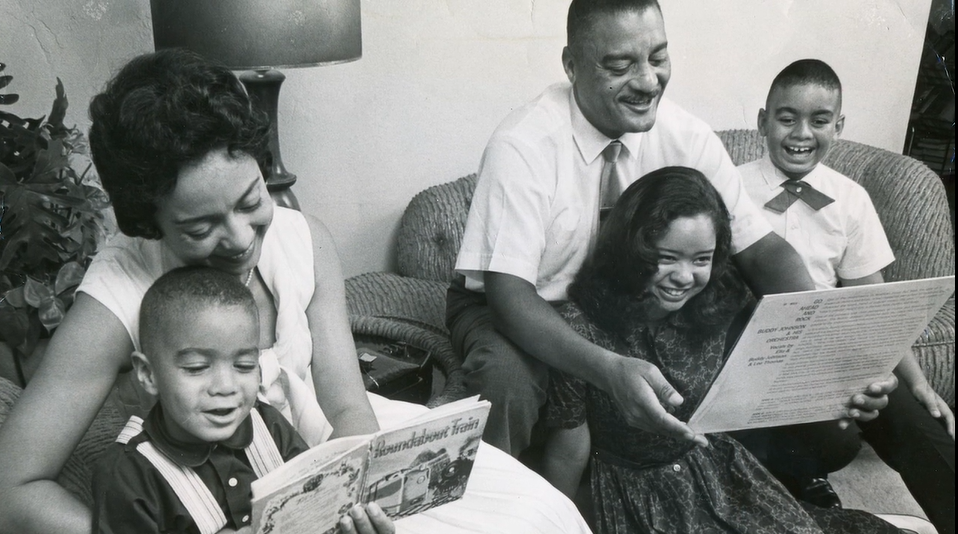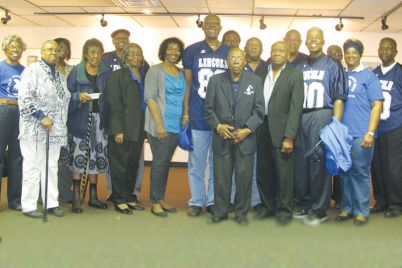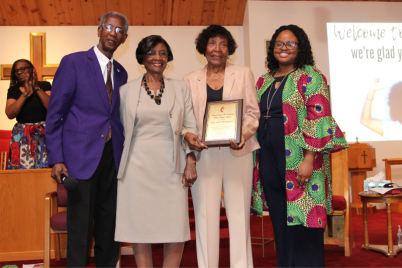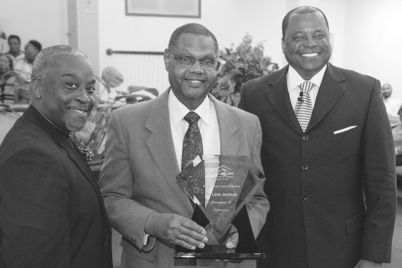Ralph Wimbish, Jr. threw out the First Pitch at the inaugural Black Legacy Game at Tropicana Field as the Tampa Bay Rays took on the Kansas City Royals on June 23. Left, Grace and Ralph Wimbish, Jr., Irene Pridgen and Wimbish’s niece, Dr. Jennifer Griffith
BY ROGER K. CLENDENING, Staff Writer
ST. PETERSBURG – Ralph Wimbish, Jr. threw out the First Pitch atthe inaugural Black Legacy Game at Tropicana Field as the Tampa Bay Rays took on the Kansas City Royals on June 23.
Wimbish Jr., a retired editor, sportswriter and south St. Pete native, said his dad, civil rights fighter/leader Dr. Ralph Wimbish Sr., is his ultimate hero, a Black man his son said is still not getting the praise he deserves.
Aware of the nationwide campaign to erase Black history, Wimbish, Jr. said that attending the game should be accompanied by citizens and baseball fans, increasing acknowledgment of his dad’s work and achievements, capturing civil rights for Black citizens.
Fans could purchase specially priced $19.61 tickets representing the year the St. Louis Cardinals desegregated their players’ housing during spring training in St. Petersburg.
Well, as Wimbish, Jr. wrote about in his book, “Heroes: Stories of Sports, Courage and Class,” the Redbirds organization and the racist white hoteliers didn’t act in a vacuum after more than 50 years of their violent “No Niggers” allowed campaign enforced by gun-toting sheriffs and city cops.
It was 1961 when Dr. Wimbish and his Black men and women comrades, who had been housing Black and Brown players, refused admission to hotels, threw down the gauntlet, and told teams and hoteliers they were done facilitating their segregation enterprise.
The Wimbish family faced death threats and cross burnings on their property not only because of Dr. Wimbish’s civil rights work but also because of his wife, C. Bette Wimbish — the first African American to hold modern elected office in the Tampa Bay area, the first Black female lawyer in Pinellas County, the third in the state of Florida and the first Black vice mayor for the City of St. Petersburg — was building significant challenges to the racist, segregated status quo.

The Wimbish family
In fact, recalled Wimbish Jr., it was on January 31, 1961, that his dad met a sports reporter from the St. Petersburg Times and told him that he and other African-American homeowners would no longer house or find housing for Black and Brown players of the New York Yankees and the St. Louis Cardinals during spring training.
Those two teams, both then based in St. Petersburg, had been unwilling to challenge the segregation policies imposed by the local white-owned hotels their organizations used each year.
“My Dad,” Wimbish, Jr. wrote, “insisted that the Yankees and Cardinals flex their economic muscle in order to stop the ongoing housing discrimination.” The decision, he reported, was “enforced that spring.”
In “Heroes: Stories of Sports, Courage and Class,” Wimbish Jr. notes that the timing of the money talks and BS walks edict was critical: “With rookies, pitchers, and catchers scheduled to report to Florida in two weeks, it was an unexpected bombshell. The story went national, having a rippling effect throughout baseball.”
Young Wimbish, now accompanied by a brother and sister, observed, with his parents, the partial culmination of their fight to send Jim Crow into the dustbin of history.
The Yankees, the Cardinals and other teams training in Florida scrambled to find a new hotel or demand changes to the existing one they used. “Some clubs threatened to leave their spring host cities,” he reported.
When the Yankees announced a move to Ft. Lauderdale in 1962, a cross was burned on the Wimbishes’ front yard. Also, there were threatening phone calls as well as death threats.
Some teams took longer to act, but by 1964, the Minnesota Twins, who trained in Orlando, became the last team to integrate its spring training quarters.
Wimbish Jr., himself a history maker as one of only a handful of Black editors or sportswriters working in major media, said he’s aware of campaigns in Florida to erase the past. Not so fast, Florida, the talented writer asserts.
“History, particularly Jim Crow, should never be forgotten. Black history, which my parents were part of, can’t be and shouldn’t be written off,” he insisted.
Wimbish Jr. has written several books, including “Elston,” a story about the Yankees’ catcher Elston Howard, which are available on Amazon. They are solid, historical reads worthy of your time and money.












Great article, thank you for publishing. I visited the Wimbish family home when I was in 1oth grade. I remember them well. Thank you for publishing.